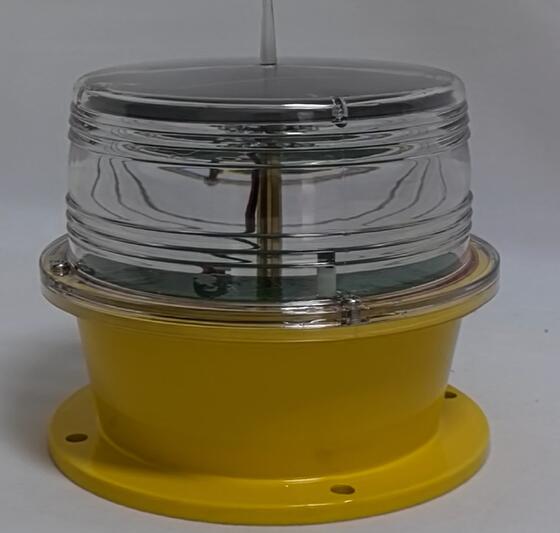LED Marine Lantern: A Beacon of Efficiency and Safety
Navigating the open seas and coastal waters demands precision and reliability, especially in challenging conditions. Traditional marine lanterns, while effective, have seen a transformative evolution with the advent of LED technology. The LED marine lantern now stands as a modern solution, combining durability, energy efficiency, and enhanced visibility to meet the rigorous demands of maritime navigation. These innovations have redefined safety standards, ensuring vessels can navigate safely through all environments.
Understanding the LED Marine Lantern
An LED marine lantern is a navigation aid that employs light-emitting diode (LED) technology to illuminate maritime markers. Whether mounted on buoys, lighthouses, or offshore platforms, these lanterns provide visual signals to guide vessels safely. The LED design offers numerous advantages over traditional incandescent or halogen lights, including longer lifespan, lower energy consumption, and brighter, more consistent illumination.

LED marine lanterns are engineered to withstand harsh marine environments, from salt spray and high winds to extreme temperatures. Their adaptability and efficiency make them a preferred choice for modern maritime operations.
| LED marine lanterns | LED marine lantern |
Key Features of LED Marine Lanterns
Energy Efficiency
LED technology consumes significantly less power compared to traditional lighting. Many LED marine lanterns are solar-powered, making them an ideal choice for remote or off-grid locations.
Longevity
LEDs have an extended lifespan, often lasting tens of thousands of hours. This reduces the need for frequent replacements, lowering maintenance costs.
High-Intensity Illumination
The brightness of an LED marine lantern ensures optimal visibility, even in adverse weather conditions such as fog, rain, or storms.
Environmentally Friendly
Solar-powered and energy-efficient designs contribute to a smaller carbon footprint, aligning with global sustainability goals.
Customizable Light Patterns
LED marine lanterns offer a wide range of programmable flash patterns and colors to meet specific navigational needs, aiding in clear communication with mariners.
Robust Design
Built to endure the rigors of marine environments, these lanterns are made from corrosion-resistant materials, ensuring durability and reliability.
Applications of LED Marine Lanterns
Buoy Lighting
LED marine lanterns are commonly used on buoys to mark safe navigation channels, hazards, and anchorage zones. Their visibility aids vessels in avoiding obstacles and staying on course.
Lighthouse Beacons
Modern lighthouses are adopting LED marine lanterns to provide brighter, more reliable signals that can be seen from greater distances.
Offshore Platforms
Oil rigs and wind farms utilize LED marine lanterns to alert vessels to their presence, ensuring safety in busy maritime areas.
Port and Harbor Lighting
Ports and harbors rely on LED marine lanterns to guide ships during docking and departure, ensuring smooth and safe operations.
Emergency and Temporary Use
Portable LED marine lanterns are ideal for emergency situations or temporary setups, such as marking rescue zones or construction sites.
Advantages of LED Marine Lanterns
Improved Safety
Bright, consistent illumination from LED marine lanterns enhances safety by providing clear visual guidance, even in low-visibility conditions.
Cost-Effectiveness
The low energy consumption and long lifespan of LEDs reduce operational and maintenance costs over time, making them a cost-efficient solution.
Flexibility
With programmable settings, LED marine lanterns can adapt to various needs, from signaling specific hazards to marking complex navigational routes.
Sustainability
Solar-powered LED marine lanterns eliminate the need for external power sources, reducing environmental impact while ensuring continuous operation.
Reliability in Harsh Conditions
Marine environments are demanding, but LED marine lanterns are built to withstand extreme conditions, ensuring uninterrupted functionality.
Technological Innovations in LED Marine Lanterns
Solar Integration
Many modern LED marine lanterns feature integrated solar panels and battery storage, providing a renewable and reliable power source.
Remote Monitoring
Advanced models offer remote monitoring and control, allowing operators to adjust settings, check status, or perform diagnostics from a central location.
GPS Synchronization
GPS-enabled LED marine lanterns synchronize flash patterns across multiple devices, ensuring coordinated signaling in navigational systems.
Compact and Modular Designs
The compact design of modern LED marine lanterns makes them easier to install and maintain, while modular components allow for quick repairs or upgrades.
Wireless Technology
Wireless connectivity simplifies installation and enhances functionality, particularly for temporary or remote deployments.
Environmental Impact
LED marine lanterns align with global efforts to reduce carbon emissions and promote sustainability. Solar-powered designs eliminate the need for fuel-powered generators, while their energy efficiency minimizes resource consumption. Additionally, the use of recyclable materials in construction further reduces their environmental footprint.
Challenges and Considerations
While the LED marine lantern offers numerous benefits, it is essential to consider factors such as proper installation, periodic maintenance, and compatibility with existing navigation systems. Ensuring that mariners are familiar with specific light patterns and signals is also crucial for maximizing effectiveness.
The LED marine lantern represents a significant advancement in maritime safety and efficiency. With their energy-efficient design, durability, and adaptability, these lanterns have become indispensable tools for navigating the seas. Whether marking hazards, guiding vessels, or supporting offshore operations, LED marine lanterns provide reliable illumination that enhances safety and sustainability. As technology continues to evolve, these beacons of light will remain at the forefront of maritime innovation, ensuring safe and efficient navigation for years to come.
